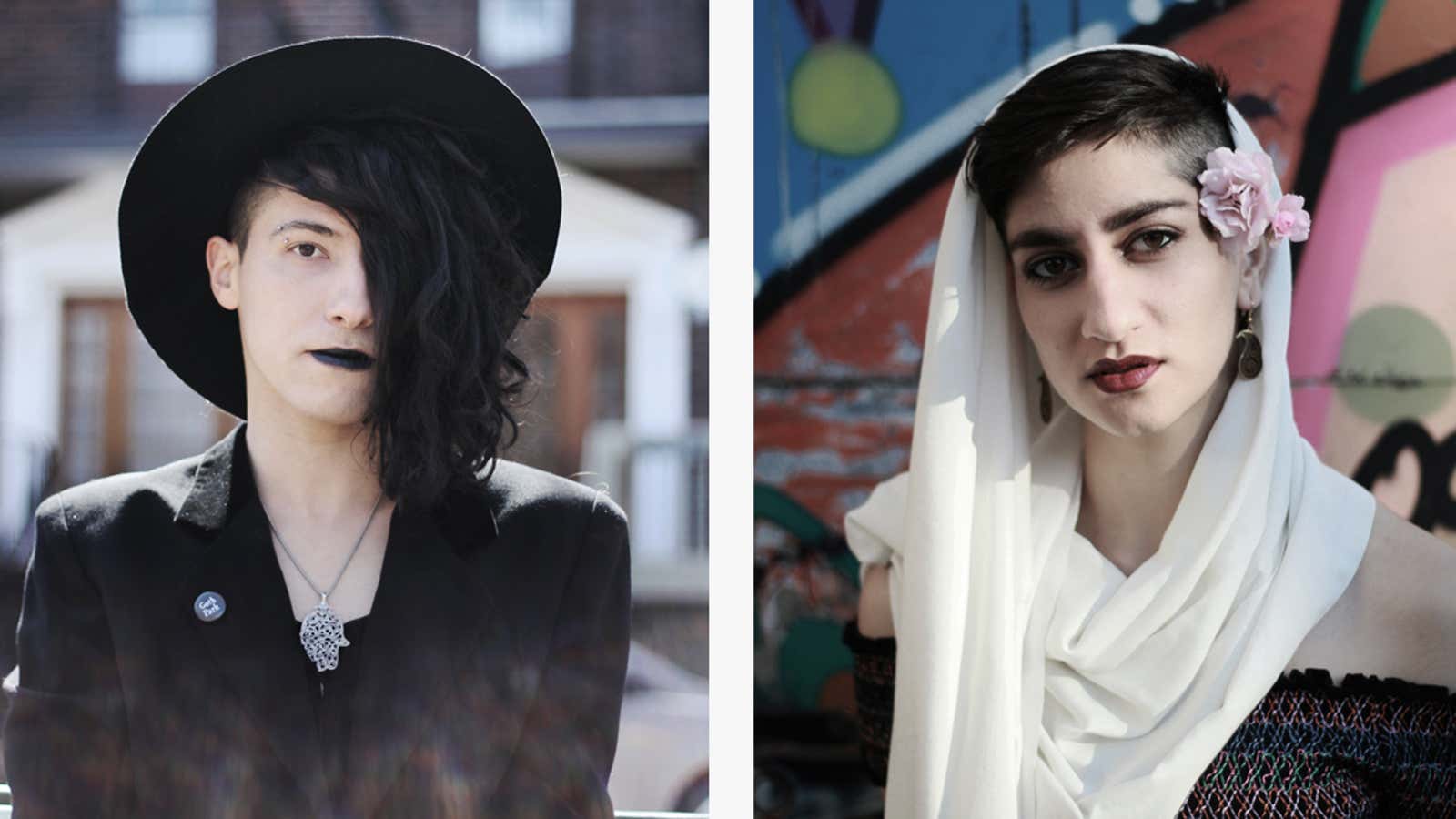In Islam, capital punishment is supposed to be reserved for only the most grievous crimes, which hurt society as a whole. But some religious jurists view homosexuality in that light; in countries like Iran, Saudi Arabia, Sudan, and Yemen, LGBT individuals can be threatened with anything from jail time to the death penalty.
Samra Habib, a 35-year-old photographer from Pakistan, has struggled with her own relationship to Islam as a queer Muslim. She does not feel comfortable in traditional mosques, telling Quartz, “They are segregated by gender and aren’t welcoming to queers.” But at the same time, she says she does not want to lose her identity as a Muslim, and finds comfort and inspiration in religion.
Her solution: Find others with the same experience. Habib’s interview and portrait Tumblr project “Between Me and Allah,” reveals how queer Muslims of all ages have learned to reconcile faith with love.
“My goal is to photograph and interview queer Muslims with a wide range of stories and experiences,” she says. “And I’d also like to help queer Muslims who live in countries with no support system feel that they’re not alone.” See an eye-opening selection of photos and interview excerpts below.
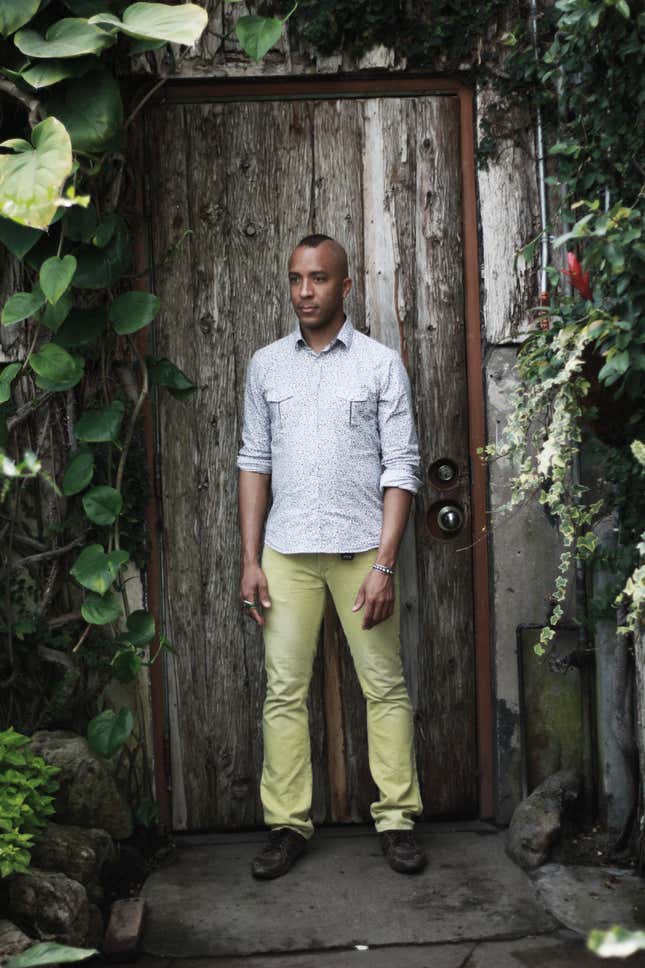
Troy: “I’ve identified as Muslim since 2007, but I officially converted in 2011. I have done my Umrah, it was a mind-expanding experience, however I do not think I would go back again. I have issues with the Saudi state’s hypocrisy as the custodians of Mecca.
“Even though I grew up Baptist, I was attracted to the fact that Islam doesn’t have a concept of original sin, we’re not born sinners, we are born forgetful, that’s a more positive way to begin in this world. I get inspired from positivity. I also am inspired by the fact that Islam traditionally encourages a quest for knowledge, we’re not supposed to take things at face value. We’re supposed to question people, places and things. That really got to my core as a person.
“To me, a beautiful recitation of the Quran is like music. The way it vibrates, it shakes my spirit. The only other time I had that feeling was when I was at a hip hop show and the MC’s voice shook my soul and called me to the stage.”
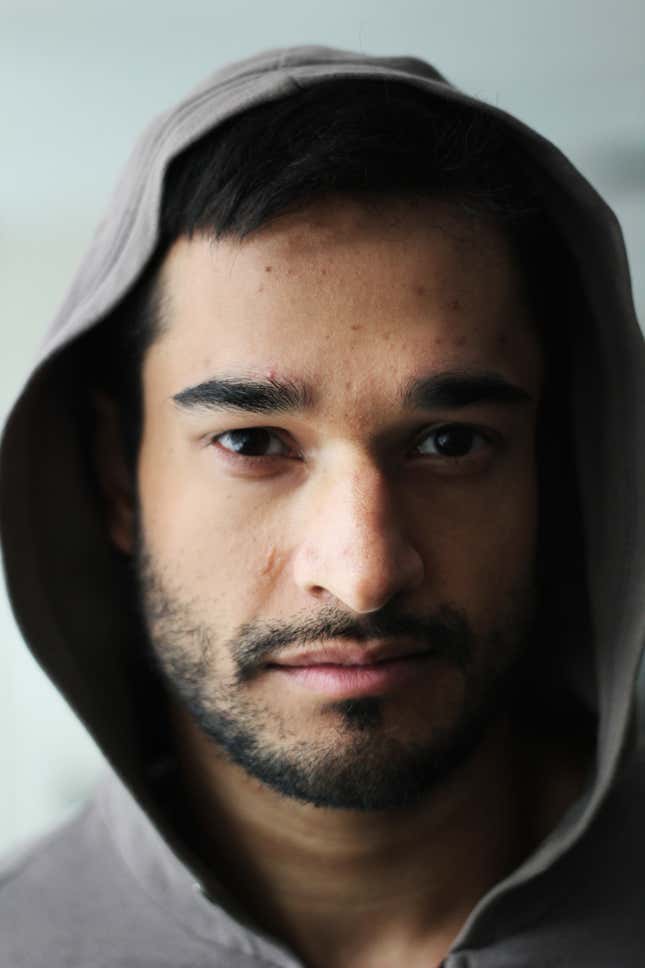
Shazad: “I was born in St. Albert, Alberta, Canada. I grew up with a lot of extended family around me. We were semi-religious but everyone fasted during Ramadan and we all celebrated Eid.
“My mom raised me and my sister and did the best she could. She believed in God and taught me how to pray Namaaz but never forced us to be religious. She believed that just because you follow the five pillars of Islam, it doesn’t automatically mean that you’re a good person. Having a heart trumps being religious.
“During my parents’ divorce, I tried to cling to Islam because I felt scared and conflicted. I thought I was a bad person and would go to hell for being gay and that coming out would stress my mom out even more. This continued until I learned about reconciling my sexuality with my religious beliefs in university. I stopped being scared. It didn’t make sense to me that I would burn in hell for loving a man.”
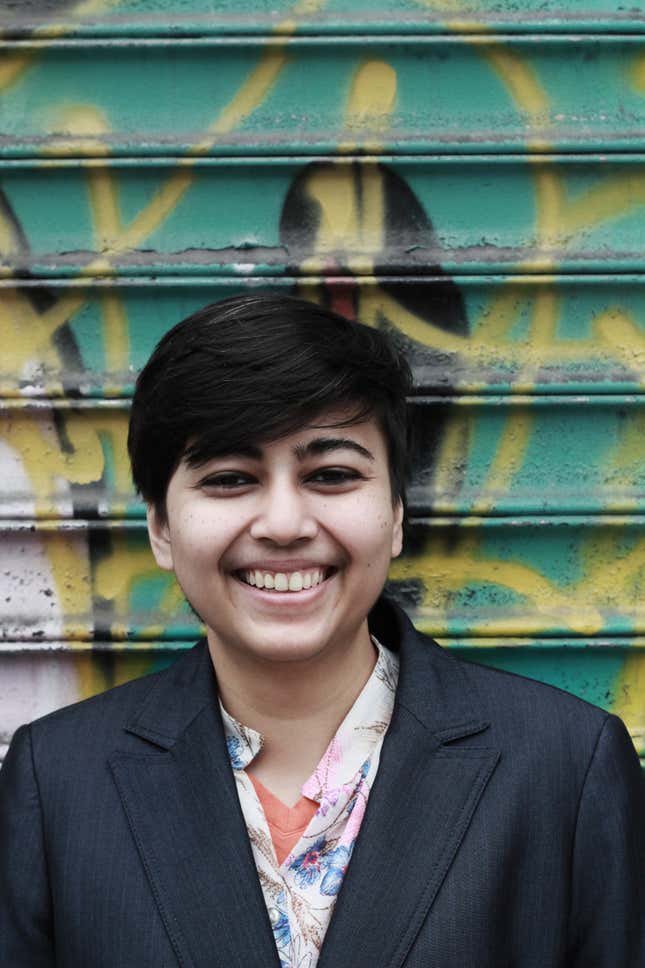
Farhat: “I was raised in a somewhat liberal Bangladeshi family in Dhaka, Bangladesh. However, my parents were very punitive in terms of having relationships with the exterior world, hence my interactions with school friends and other family members were minimal.
“My relationship with Islam has changed significantly over the past few years. I was not religious while growing up and I also knew I was queer since age 10. However, I felt ashamed of my sexuality and my gender and I continued to pathologize it over the course of my teenage years. After I entered my first year at college, I was confronted with my queerness head-on and I took a year’s leave from college and went back to Bangladesh with the hopes of driving my queerness away.
“I devoted all my time to practicing Islam and incorporating the best values of the Prophet Mohammad Sallallahu Alaihi wa Sallam. I had a dear friend who accompanied me and truly guided me through this amazing journey of intricately understanding glorious Islam. Yet, I continued feeling that I would not be able to change or suppress my orientation or gender nonconforming self.
“I returned to the US for my second year at college after which I started making some queer friends and became more comfortable with my sexuality and gender. There continues to exist a massive tension between navigating activist radical queer spaces and being a Muslim who calls to Allah every day. I continue to have debates within myself on what it means to incorporate Islam in my life and to be a part of a community that I deeply care about and believe in as well.”
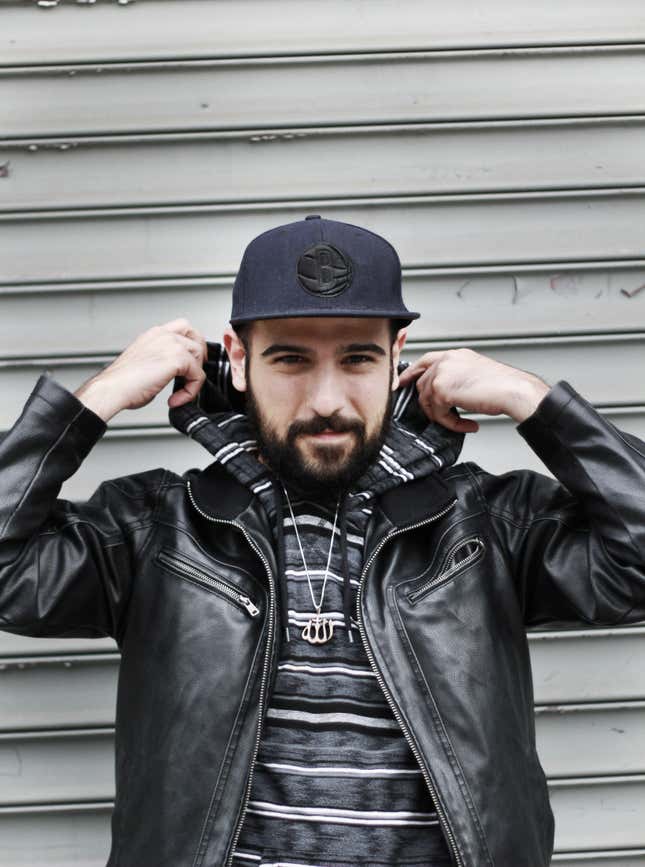
Harry: “My mom was born and raised in Damascus, Syria, to a Syrian Muslim father and a Lebanese Maronite mother. My dad grew up in Brooklyn and was born to two Pontic Greek parents from the Macedonia region.
“I came out to my parents when I was 13. I wrote a note to my mom in Arabic and left it on her bathroom mirror when she wasn’t home, and went to a friend’s house to spend the night before she saw it. I’m eternally grateful for the love, acceptance, and support my family has always shown me.
“When I was in high school, the only queer representations in the media I remember were white, skinny, hairless, and rich, which I obviously couldn’t relate to. I remember wanting so badly to meet other queer Arabs and Muslims, to be able to relate to someone on that kind of level was a huge deal for me. I eventually found an amazing group of social justice-oriented queer Arabs and Muslims after I moved to New York, and it almost feels surreal to look back on the time when I didn’t have that kind of support in my life.
“I think one of the biggest challenges facing queer Muslims in America is decolonizing our mindsets. There have been more than a few times where I’ve seen or heard other queer Muslims regurgitate some very disgustingly racist and Islamophobic rhetoric against visibly religious (and presumably straight) Muslims under the guise of “protecting oneself.”
“How can you claim to fight against racism and all the other -isms on behalf of others when you perpetuate it against your own?”
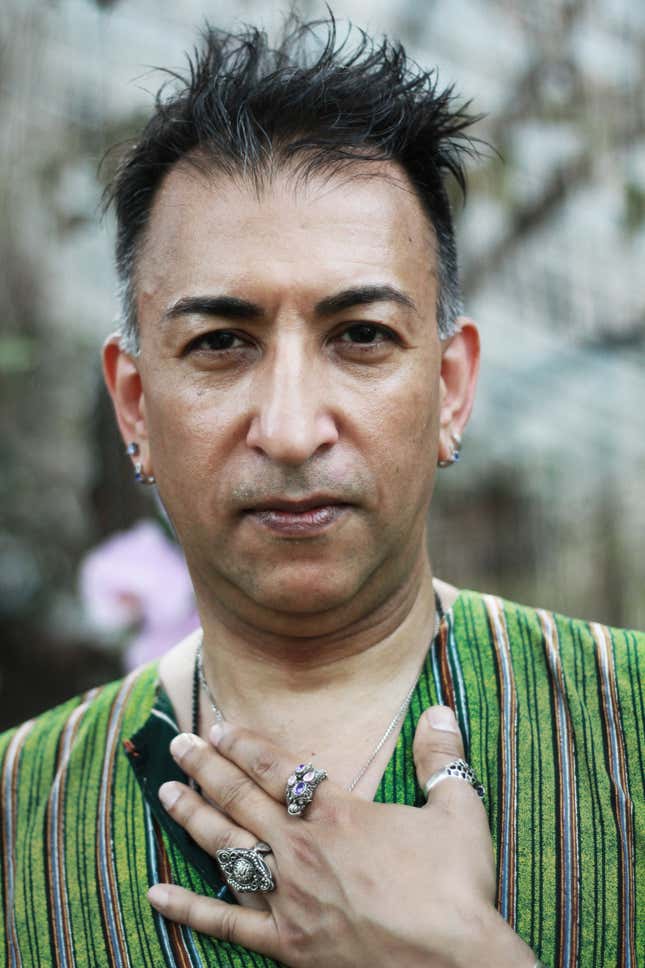
El-Farouk Khaki: “I was born in Tanzania. We fled because of my father’s political profile. We lived in England for three years and came to Canada in March of 1974.
“My father was a committed humanist and activist. The Islam they taught me was one of justice and love that embraced diversity and liberation. It was an Islam heavily influenced by a variety of Muslim traditions, especially Sufism.
“One of the things that’s happened in Islam, especially post-oil and post-Iranian revolution, is that Islam has been reduced on many levels to a simple list of dos and don’ts. It’s devoid of any spirituality or any intimacy with the creator. The fact is that gay, lesbian, bisexual and transgender folks have always been accepted into Muslim societies. Today, people’s Muslim identities are being denied and robbed, taken away from them.
“When I started Salaam (a queer Muslim community in Canada) back in 1991, it was about trying to create a community space. In those days, I don’t think I was ready to reclaim a religious space but it became apparent to me that there was a need for it. Six years ago, my partner Troy Jackson, Laury Silvers and I decided to start a Friday mosque space with the intention that it would become more than a Friday space and it would be beyond Toronto. Which is what’s happening: We now have seven active communities.
What’s really significant is the fact that we have triggered people’s imagination with the notion of an inclusive mosque space that’s gender equal and queer affirming. It’s a place that doesn’t ask you if you’re a Muslim or what kind of Muslim you are. Where everybody is welcome. People are embraced in the fullness of their authenticity.”
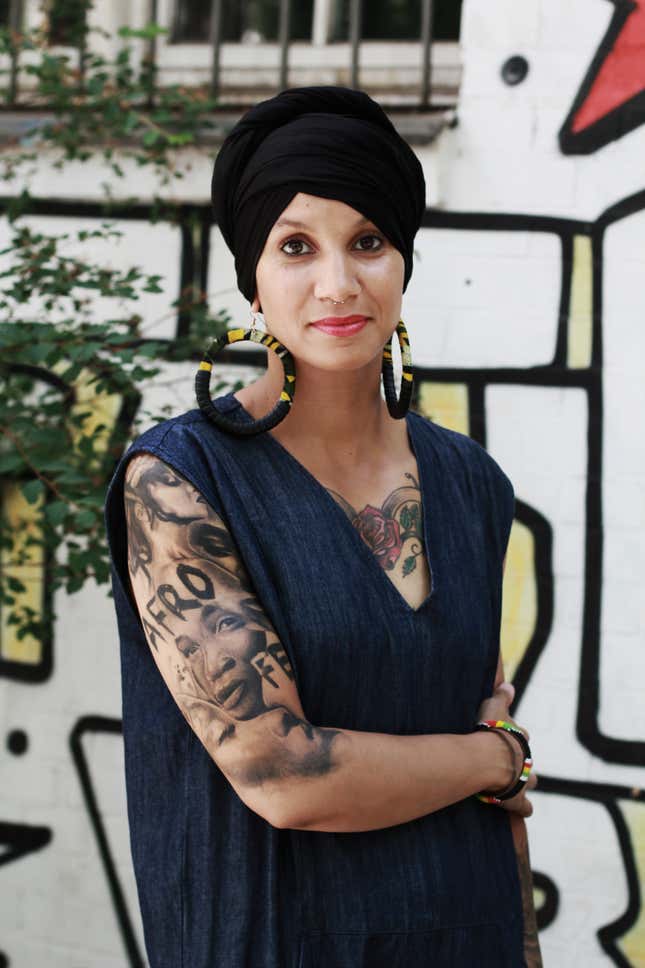
Leila: “I am a black Arab, meaning that my mum is North African from Algeria and my dad is Caribbean. My mum used to fast during the month of Ramadan and it’s the only time we practiced Islam.
“I have always been a spiritual person and the first time I got to know a bit more about Islam was when I was 16. I was in the library and picked up the Qu’ran and read the French translation. I read it in three weeks. I talked to my Muslim aunty about it and she gave me some books about the life of our beloved Prophet Mohammad (sws).
“I started reading more and more about Islam and fell in love with it. When I was 20, I decided to become a Muslimah (Muslim woman). I started wearing the hijab when I was 25. That was a big decision, especially in an Islamophobic country like France. I am a social worker and a special needs educator and it became a struggle to find a job in Paris. My life in France became hell on earth.
“As time passed, my hijab was more than a symbol of faith, it became a symbol of resistance and a political symbol. My hijab is political, my hijab is resistance. I am covered in tattoos so when people see me with a hijab, they’re always shocked. Some non-Muslims like to tell me that I shouldn’t have tattoos or dress this way. They’re becoming the Mufti of Paris. I just want to say “it’s between me and Allah!”
“Since a young age, I knew that I was queer and to be honest it never caused me any problems, maybe because I didn’t mention it and it was not even necessary.Being queer and Muslim is not a disease. We are lacking a safe space. We are meeting up a lot in really small groups but it’s still not enough. Some of us are scared and it’s not easy.”
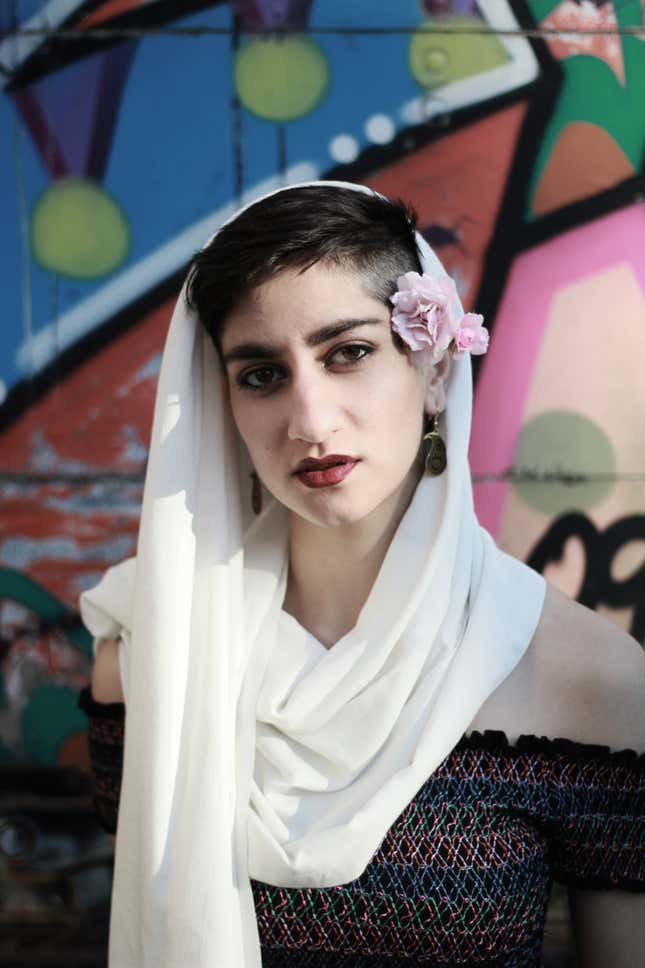
Shima: “I was born and raised in Shiraz, Iran. My family and I moved to Canada about three years ago after living in Malaysia for a while. I knew my Islam wasn’t that of my teachers.
“Like most other Iranians who have a hard time with Islamic governance, my family’s relationship with Islam is a complicated one. I remember my mum giving my dad the stink eye when he’d say blasphemous things. To him God is in everything but my mum had a more traditional view of the religion.
“As a kid, I daydreamed of being suited up and kissing my wife goodbye like the white couples on TV did. As a preteen, I cut my long hair short to look masculine because I thought of masculinity as being synonymous with having power and liking girls.
“In my opinion, stigma and misplacement are some of the biggest challenges facing queer Muslims today. Islam is incredibly misunderstood and the queer conversation is only just beginning. The supposed juxtaposition of Islam and queerness is only made more complicated by the North American hostility towards Muslims, in a climate where Muslims strive for acceptance and visibility.”
